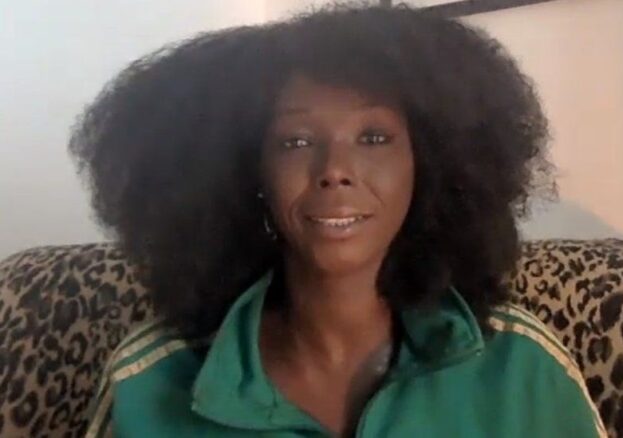
Female and non-binary musicians who formed a network of artists say it has helped them find a “safe space” in the industry.
The Ladies of Rage music collective began in Cardiff. and now has more than 400 members across Wales.
Focusing mainly on urban and Mobo (music of black origin) genres, it encourages greater racial and gender diversity.
During the pandemic, the group’s members have supported each other with online gigs, playlists, and chats.
Being Brown and Welsh
Despite missing being onstage, its members were celebrating International Women’s Day with local radio takeovers and a bilingual EP called Harddwch Du/Black Beauty, which features only women of colour with lyrics exploring “being brown and Welsh” and Black Lives Matter protests.
The group has produced podcasts, mixtapes, tracks, poems, discussions, and interviews for a takeover on digital radio station Dub Frequency Radio on Monday.
The celebrations will be tinged with sadness though, as they pay tribute to much-loved south Walian producer Rob Stagg, known as Stagga, who was an integral part of the Cardiff underground music scene and died of a heart attack just before Christmas.
Ladies of Rage member Amelia Unity said: “We need male allies to make change. I would never have had the confidence or self-belief to release any music if it weren’t for his encouragement, and it’s thanks to him that I’m now learning to produce my own music.”
She added the collective had been “life-changing” for her, personally and professionally.
“I’ve always been into hip hop and I’ve always been used to being the only woman – or in the minority at least – at events. So, I am used to just being around men.
“After having been to a few Ladies of Rage jams and it being like this gap that I did not even know was a gap, was filled… I felt safe, where before I didn’t even realise I didn’t feel safe because it was just normal.”
‘Wales is the land of song – so let’s sing.’
Chair Dionne Bennett said the collective aimed to inspire a new generation of musicians, after she left Wales at a young age and pursued her career in London.
“I don’t think I’d be doing what I’m doing without a group like this that supported me in my journey,” Dionne said.
“So, it was absolutely essential for me as a singer and as a musician to do something to give back, to give other kids and give black women like myself the opportunities that I’ve had.”
“Some members have gone back into education because of us, some members have increased their confidence, done things they would never have done before. We’ve upskilled each other, we’re always continuing to share knowledge and experience, making sure that we’re creating safe spaces so that members feel they can be heard and can be listened to.”
“What we’ve done through the pandemic is basically be there to support each other; it’s been quite hard not to be able to perform, you miss that sisterhood as well.”
“We’re Welsh and we need to create a vibrant music scene – and that comes from diversity, that comes from equality. It does not come from shutting people out. Wales is not just indie music; black music is not just hip hop. I just hope the next generation gets more opportunity here and can be proud to be diverse, Welsh and play black music – and why not? Wales is the land of song – so let’s sing.”
